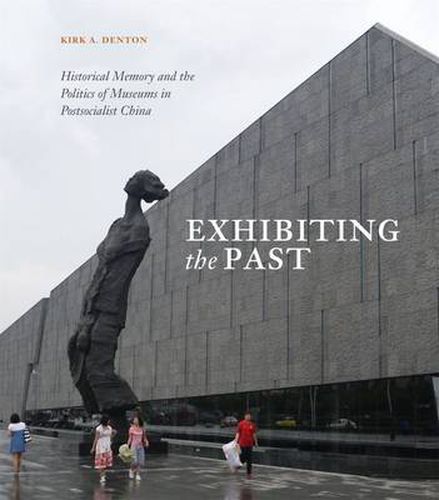Readings Newsletter
Become a Readings Member to make your shopping experience even easier.
Sign in or sign up for free!
You’re not far away from qualifying for FREE standard shipping within Australia
You’ve qualified for FREE standard shipping within Australia
The cart is loading…






During the Mao era, China’s museums served an explicit and uniform propaganda function, underlining official Party history, eulogizing revolutionary heroes, and contributing to nation building and socialist construction. With the implementation of the post-Mao modernization program in the late 1970s and 1980s and the advent of globalization and market reforms in the 1990s, China underwent a radical social and economic transformation that has led to a vastly more heterogeneous culture and polity. Yet China is dominated by a single Leninist party that continues to rely heavily on its revolutionary heritage to generate political legitimacy.
With its messages of collectivism, self-sacrifice, and class struggle, that heritage is increasingly at odds with Chinese society and with the state’s own neoliberal ideology of rapid-paced development, glorification of the market, and entrepreneurship. In this ambiguous political environment, museums and their curators must negotiate between revolutionary ideology and new kinds of historical narratives that reflect and highlight a neoliberal present.
In Exhibiting the Past, Kirk Denton analyzes types of museums and exhibitionary spaces, from revolutionary history museums, military museums, and memorials to martyrs, to museums dedicated to literature, ethnic minorities, and local history. He discusses red tourism-a state sponsored program developed in 2003 as a new form of patriotic education designed to make revolutionary history come alive-and urban planning exhibition halls, which project utopian visions of China’s future that are rooted in new conceptions of the past. The book considers the variety of ways state museums are responding to the dramatic social, technological, and cultural changes China has experienced over the past three decades.
$9.00 standard shipping within Australia
FREE standard shipping within Australia for orders over $100.00
Express & International shipping calculated at checkout
During the Mao era, China’s museums served an explicit and uniform propaganda function, underlining official Party history, eulogizing revolutionary heroes, and contributing to nation building and socialist construction. With the implementation of the post-Mao modernization program in the late 1970s and 1980s and the advent of globalization and market reforms in the 1990s, China underwent a radical social and economic transformation that has led to a vastly more heterogeneous culture and polity. Yet China is dominated by a single Leninist party that continues to rely heavily on its revolutionary heritage to generate political legitimacy.
With its messages of collectivism, self-sacrifice, and class struggle, that heritage is increasingly at odds with Chinese society and with the state’s own neoliberal ideology of rapid-paced development, glorification of the market, and entrepreneurship. In this ambiguous political environment, museums and their curators must negotiate between revolutionary ideology and new kinds of historical narratives that reflect and highlight a neoliberal present.
In Exhibiting the Past, Kirk Denton analyzes types of museums and exhibitionary spaces, from revolutionary history museums, military museums, and memorials to martyrs, to museums dedicated to literature, ethnic minorities, and local history. He discusses red tourism-a state sponsored program developed in 2003 as a new form of patriotic education designed to make revolutionary history come alive-and urban planning exhibition halls, which project utopian visions of China’s future that are rooted in new conceptions of the past. The book considers the variety of ways state museums are responding to the dramatic social, technological, and cultural changes China has experienced over the past three decades.